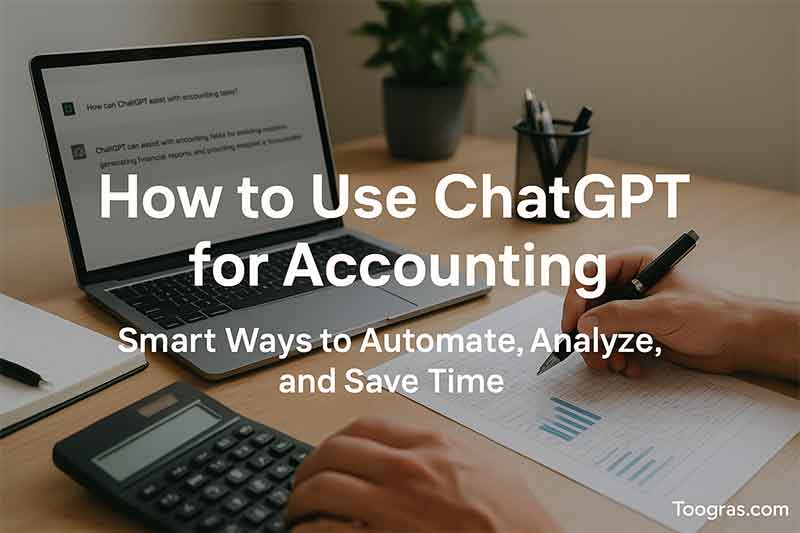How to Use ChatGPT for Accounting: Smart Ways to Automate, Analyze, and Save Time
Artificial intelligence is changing the way accountants and businesses work. ChatGPT, one of the most powerful AI tools available today, can help accountants automate repetitive tasks, reduce manual errors, and make financial analysis faster and smarter.
Whether you’re a professional accountant, small business owner, or bookkeeper, learning how to use ChatGPT for accounting can save you hours every week and improve the accuracy of your work.
Let’s explore how to get the most out of ChatGPT in your accounting workflow.
Why Use ChatGPT for Accounting?
Save Time on Repetitive Tasks
ChatGPT can handle many time-consuming tasks like drafting reports, organizing journal entries, writing client emails, and even generating summaries of financial data. This lets you focus more on analysis and strategy instead of routine paperwork.
Reduce Human Errors
AI doesn’t get tired or distracted. You can use ChatGPT to double-check your calculations, clean up transaction descriptions, or verify accounting logic to minimize costly errors.
Improve Financial Insights
With the right prompts, ChatGPT can turn complex data into simple, clear insights. It can summarize profit trends, detect unusual patterns, and explain financial metrics in plain language for clients or managers.
How to Use ChatGPT for Accounting Step-by-Step
1. Define Your Accounting Task Clearly
Be specific about what you need. For example:
“Summarize this profit and loss statement for July 2025 in three bullet points.”
The clearer your prompt, the more accurate the result.
2. Use ChatGPT for Bookkeeping Assistance
Ask ChatGPT to create journal entries, format spreadsheets, or organize transaction lists. It can also help design accounting templates for consistency and speed.
3. Generate Financial Reports Automatically
You can ask ChatGPT to create income statements, balance sheets, cash flow reports, or even ratio analysis templates. It’s a fast way to get a draft report you can review and finalize.
4. Draft Client Communications
Writing professional messages takes time. Let ChatGPT help you write polite payment reminders, financial summaries, or meeting follow-ups that sound natural and professional.
5. Analyze and Summarize Financial Data
Feed your data into ChatGPT (in text form or structured lists) and ask it to highlight key insights or suggest visual summaries. This works especially well for monthly or quarterly reviews.
Practical ChatGPT Prompts for Accountants
Here are some ready-to-use prompts you can copy:
- “Summarize this balance sheet into key insights for management.”
- “Create a month-end accounting checklist for a small business.”
- “Write a professional email to a client about an overdue invoice.”
- “Compare revenue and expenses between Q1 and Q2 from this dataset.”
- “Explain these financial ratios in simple terms for a non-financial client.”
Limitations of ChatGPT in Accounting
It Can’t Replace Human Judgment
While ChatGPT can automate and assist, it doesn’t understand the full context of your business. Always review its output and apply professional judgment before finalizing any report or financial decision.
Data Privacy and Accuracy
Never share confidential or sensitive financial data on public platforms. For professional use, consider ChatGPT Enterprise or a secure AI system that meets your company’s data protection standards.
Best Practices to Maximize ChatGPT for Accounting
- Write clear, specific prompts with context
- Always verify AI-generated data before using it
- Save useful prompts as templates for recurring tasks
- Combine ChatGPT with tools like Excel, Google Sheets, or QuickBooks for better integration
Final Thoughts
ChatGPT is not here to replace accountants—it’s here to make them faster, smarter, and more efficient. By learning how to use ChatGPT effectively, you can automate routine work, generate better insights, and focus more on what truly matters: helping clients and businesses make better financial decisions.
Related Posts:







